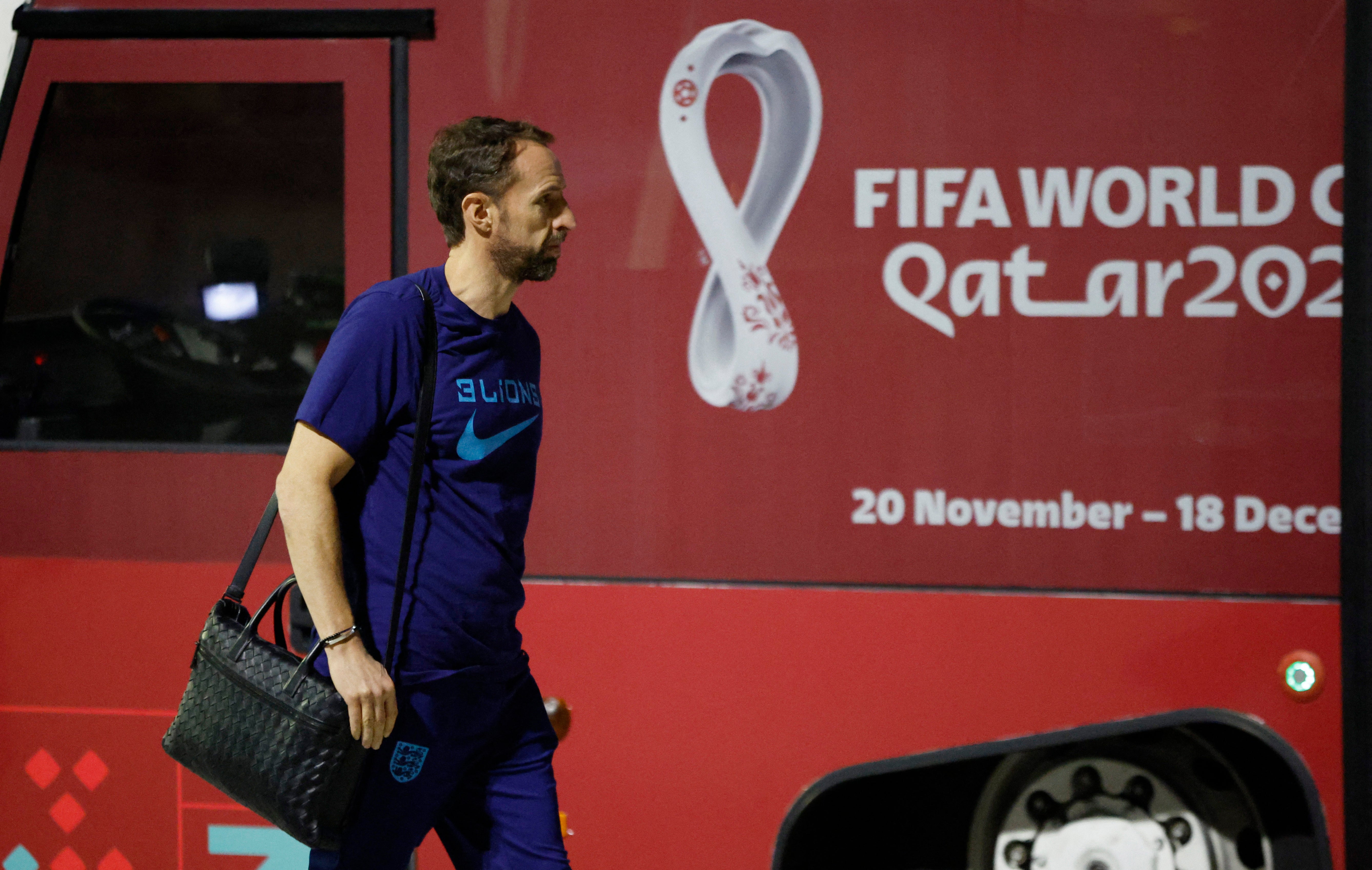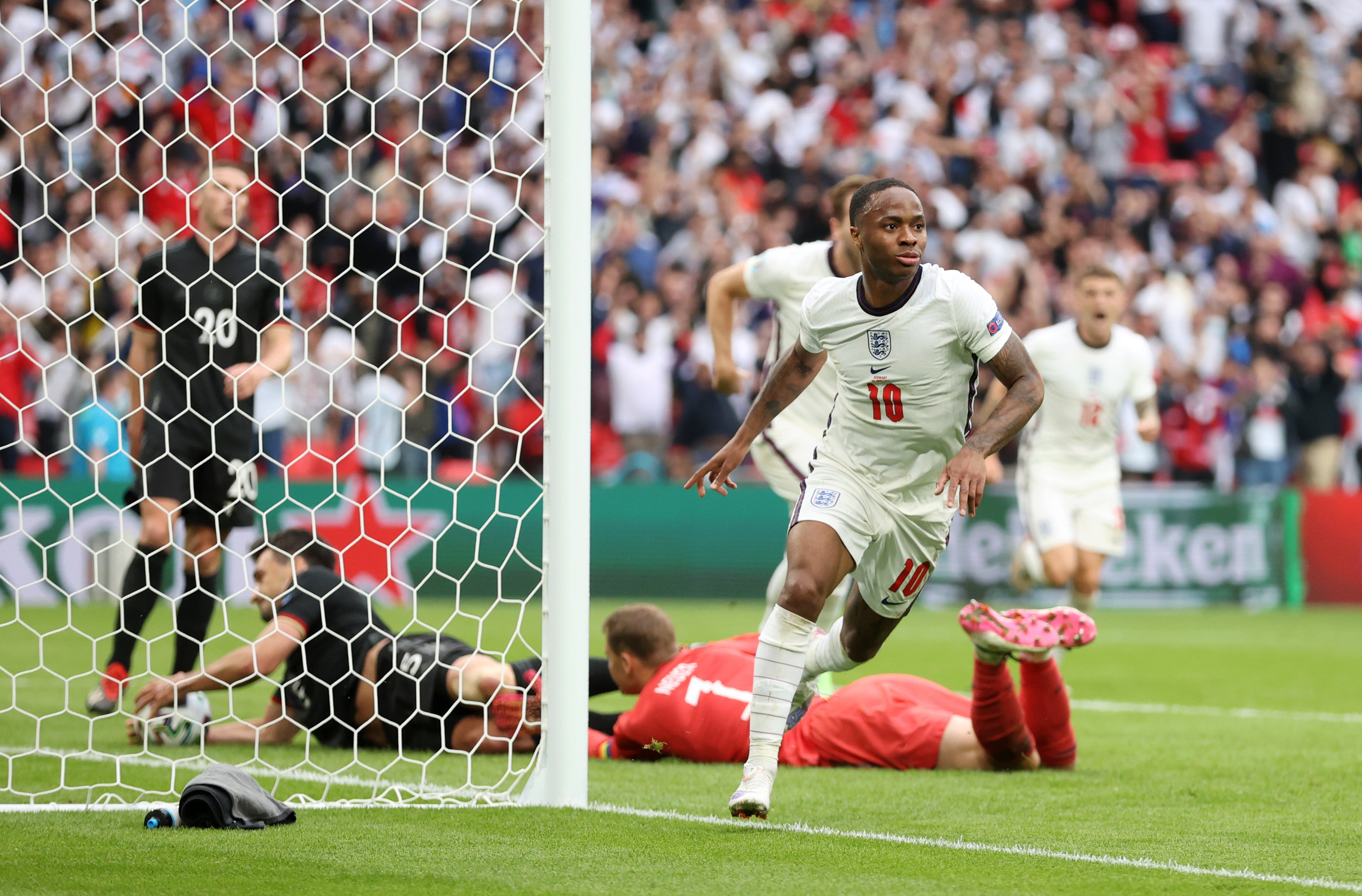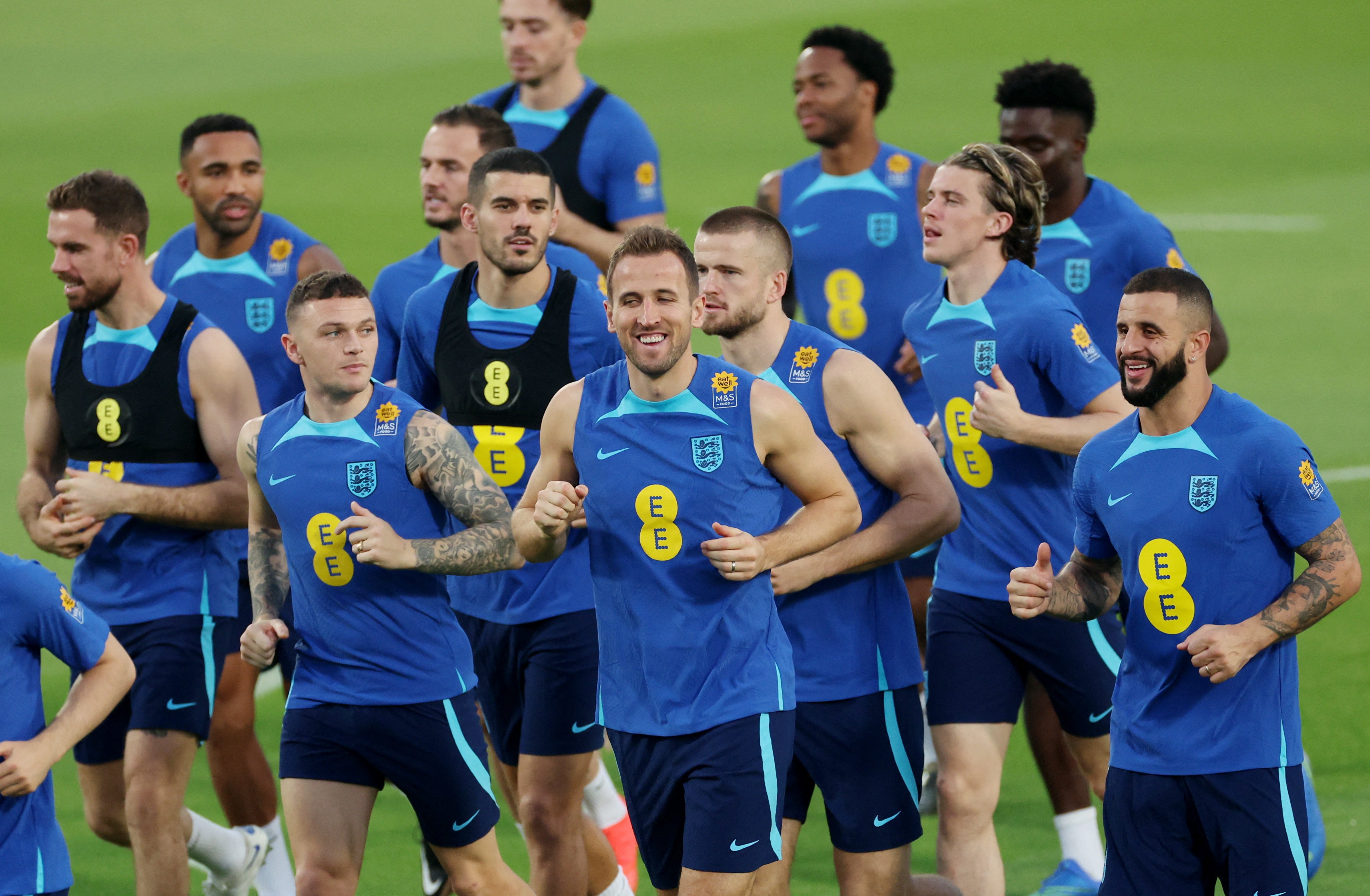
As England flew out to Doha this week, the “buzzing” players immediately got back into old groups, but not cliques. This squad “isn’t built like that”. There’s a real team spirit, and sources both inside and outside the camp sincerely say you’d struggle to find a group more united at this World Cup. It might be England’s best advantage over everyone else.
It might also, however, hint at a growing weakness.
The group’s togetherness comes from the fact a core of the squad have been together for so long, their bonds fortified by the joy of an uplifting journey. This World Cup squad actually only features five names that are different from the original 26 for Euro 2020, before two enforced changes.
It raises two major questions that are going to frame England’s entire World Cup.
The first is whether this group is past its peak. That isn’t about age, but rather that distinctive chemistry that defines all sides. Gareth Southgate has now been in charge for six years, which is a long time in international football, and makes him the fifth longest-serving manager at this World Cup.
While he has naturally ensured the make-up of the squad has evolved in that period, there’s been no break, no transition. It is really the same core that has been together for that long, too.
The second question is whether that actually matters – especially in a World Cup like this. It can’t be dismissed that recent history shows it greatly helps. The last three World Cups have all been won by squads coming to their prime: Spain 2010, Germany 2014, France 2018. What was so distinctive about each of them, and why it could even be said they define a distinctive era in international football, was that they weren’t just team cycles coming together to this peak. These World Cup winners represented the culminations of much greater projects, given how each of the countries had completely revolutionised their entire football infrastructure in the years before.
It was really the wealthiest western European countries industrialising modern talent production. They became the models, which the Football Association rightly replicated.
This only sharpens the question about where England are right now. Because, in all FA plans, the 2022 World Cup had been marked as the target for when all changes could come to fruition. It has been the long-term ambition.
While England have certainly fulfilled their objective in terms of talent production, given that the quantity of young players is the envy of Europe, the wonder is whether the current team has quite kept that pace.
England feel like they should be coming to their best moment after Euro 2020, and in the way Spain 2010 and Germany 2014 did, but they really don't look like it.
One of the lingering regrets from that tournament was over whether that specific point in time might have represented the peak for this group. The team has shown signs of staleness this year. That has especially been the case in attack, with a mere four goals in six games rounding off a miserable Nations League campaign.
There’s an argument that the drop-off fully exposed the long-term concerns about Southgate, that he is too tactically rigid a coach, unable to expand when the team isn’t on form.

For the manager’s part, the players and the people around the squad don’t really think those games mattered. The fixtures came at the end of almost two years of non-stop football after Covid, and there was just a general fatigue. And fatigue, of course, can be easily confused with staleness. The effects are similar.
Meanwhile, the planning challenges of this year have been so different. Southgate hasn’t just been trying to work from international break to international break or tournament cycle to tournament cycle, but as part of this long-term plan, and all that with the disruption of Covid and now this controversial mid-season World Cup.
It is why his squad decisions have been intriguing, even if we can’t yet say they’re instructive. They’re actually difficult to interpret according to any preconceived ideas about Southgate.
Some have indeed looked overly loyal, especially in defence. Some, by contrast, have clearly based on recent form. Some have been total wild cards.
All of that together marks a real difference for Southgate himself. It is why the James Maddison decision is genuinely one of the most drastic he’s ever made in the job. That isn’t to do with the player’s sparkling form or ability. It is because this has previously been a manager who kept Jack Grealish on the bench for years, so wasn’t prone to abrupt changes. And yet here he is picking Maddison for a World Cup and talking about starting him, having not picked him for any squad at all for three years.
All of this can currently be seen in one of two ways.
Perhaps it is indeed a sign that England are on the wrong side of a cycle, when everything is no longer just flowing from the manager’s initial convictions and he has to second-guess himself and change things to stop everything going downward. Jurgen Klopp has had similar with Liverpool. It is an issue almost totally personified by Harry Maguire. It was the centre-half’s England form that was hugely influential in his move to Manchester United, only for his experience at Old Trafford to negatively affect his performance level, meaning Southgate has had to make one of a few criticised decisions.
It sums up how this isn’t as easy as it had been. That's what happens the longer you go.
On the other side, perhaps that’s just precisely the kind of judiciousness needed.
The bottom line with England is that, although many talented players might be in the prime of their careers, the team has never actually been complete. It has always been overloaded in attack and out wide but undermanned in central defence and midfield.
Every single Southgate decision is conditioned by this. He constantly has to compromise for the balance of the team.
Those compromises nevertheless fire a debate over whether Southgate’s approach gets peak performance from the players.
There’s almost a counterintuitive element to it, and an apparent contradiction. It is precisely because England’s quality is so front-loaded that he feels the need to fortify the back of the team through sheer numbers. They need the protection. That is inevitably at the expense of so many excellent attackers, and creates a situation where more of the squad’s limited players are in the starting XI rather than truly precocious talents. That has led to a lot of criticism that Southgate is overly defensive and rigid, but he can reasonably point to other reasons for this set-up.
The England manager has made little secret of using a handbook that features acres of research on how tournaments are won. That has meant being guided by Portugal 2016 and France 2018. Those victorious sides had solid defensive structures with limited pressing, and hugely talented attackers in relatively fixed positions. This essentially explains Southgate’s three-man centre-half line. It is divisive, yes, but it can’t be disputed that it gives a team as talented as England a real chance.
You only have to look at Southgate’s record.
The persistent question is whether it gives England their best chance.
There are risks in leaning on recent tournaments in such a way. Some of them might have been circumstantial. It’s undeniable that a limited Portugal got a fortunate run in 2016, and it could be said France had such overwhelming quality that it almost made Didier Deschamps’ approach moot. There’s also the danger that you’re just fighting the last war. The game evolves. The majority of the best international sides now play the Dutch-Spanish passing-pressing game popularised by Pep Guardiola. That was how Italy won Euro 2020, and it emphasises another point. Southgate’s approach is arguably why his tournaments have generally ended against the first quality side England have played. They get outmanoeuvred in midfield and that tends to be that.

The Euro 2020 win over Germany can’t just be discounted, of course, especially given the historical psychological significance. But it was at Wembley and against a manager, in Jogi Loew, whose regime had probably gone stale four years prior.
Germany now look the side they should have been in Euro 2020. Hansi Flick has restored a verve.
It was one of the elements that did feel notable in their Nations League game in Munich, even if the results were irrelevant. While players like Raheem Sterling and Bukayo Saka were almost operating on tramlines, Jamal Musiala was constantly cutting in, creating interchanges and angles that made Germany difficult to defend against. There was movement and multiple points of attack, as opposed to so many goals going through Harry Kane.
Flick’s side weren’t on top form then, but it offered optimism for what might be possible with the more intensive training afforded by a World Cup.
There’s a deeper idea, based on what the manager did with Bayern Munich. It’s hard not to wonder what Flick or Luis Enrique might do with this England squad. These two coaches, who have both won club trebles, might be who Southgate has to outthink.
This is why the question of where England are in terms of collective performance is so relevant. You can get around such challenges if a side is on full form, fully invested.
And yet, whatever about the timing of the team’s development, the timing of the tournament might be just as influential.
It might render this entire subject moot.
The constrained build-up period and intense club schedule is going to leave even the best teams catching up with themselves. Individual player form may be more influential. The norms that dictate these discussions perhaps don’t apply because it is such an abnormal tournament.

There isn’t actually a stand-out super favourite in the way each of the last three World Cups had. Every team has flaws. It is more like 2006 or 2002 in that way, but with its own idiosyncrasies.
“This one’s totally unique in terms of preparation time,” Southgate says. “We had just over two weeks for the Euros. We had double that for the World Cup.
“We’ve had 30 days across the whole calendar year. So this is completely different, added onto ... the intensity of the schedule.
“So I think, for everybody, it’s a little bit of an unknown. I don’t know what that will mean when we get there, whether that means there are more unpredictable results.”
There’s still a lot we can predict about England, mind. We know how Southgate will approach games. We know of the profound unity within the squad.
We just don’t know where the squad is in its cycle. Only the next few weeks will tell whether this is England’s great chance, as had long been planned, or whether they’ve already missed it.







